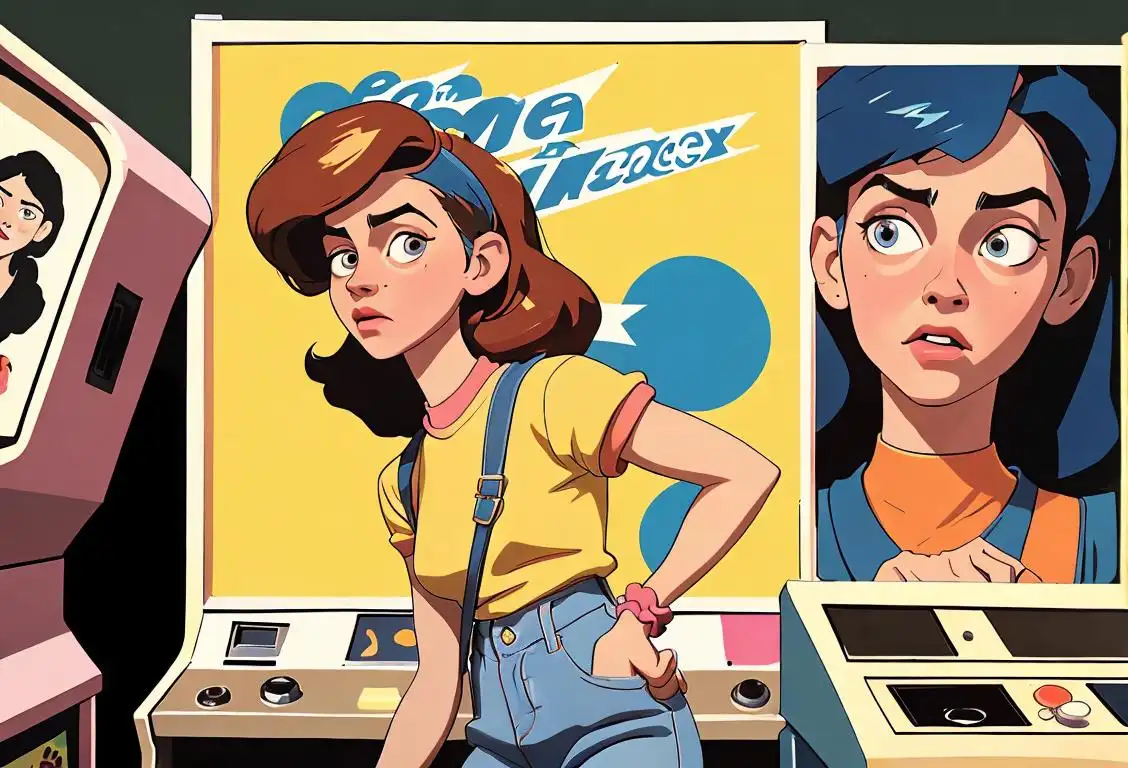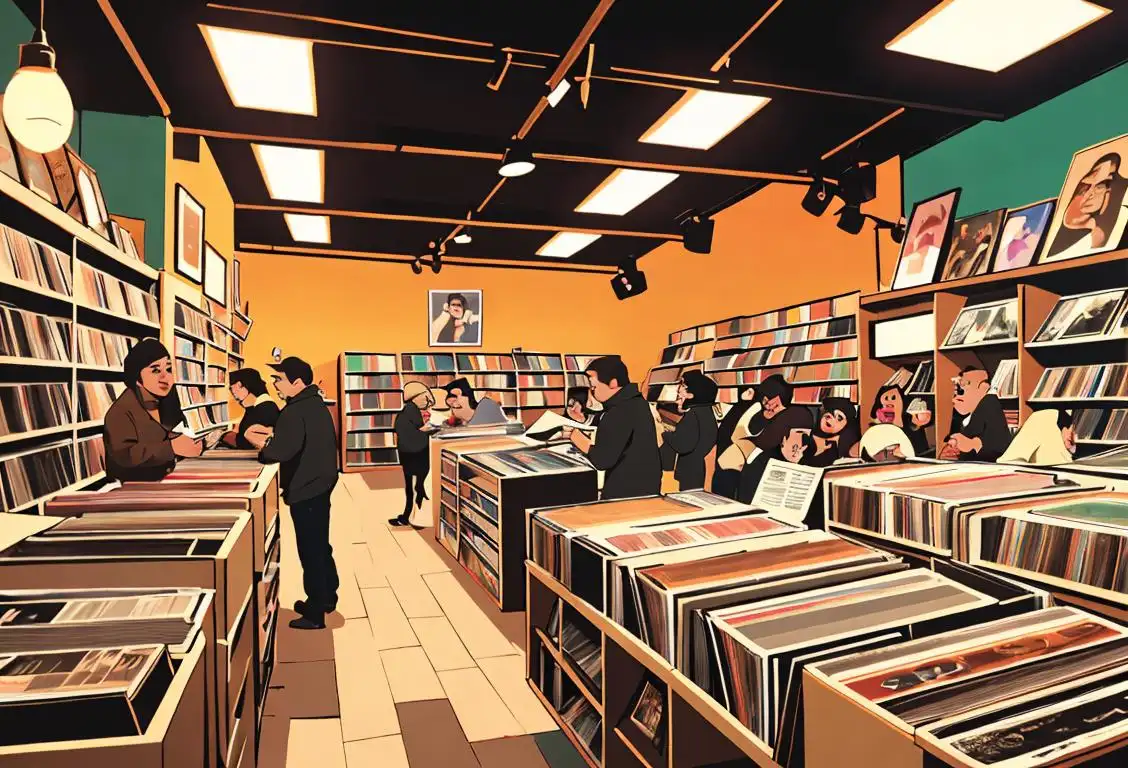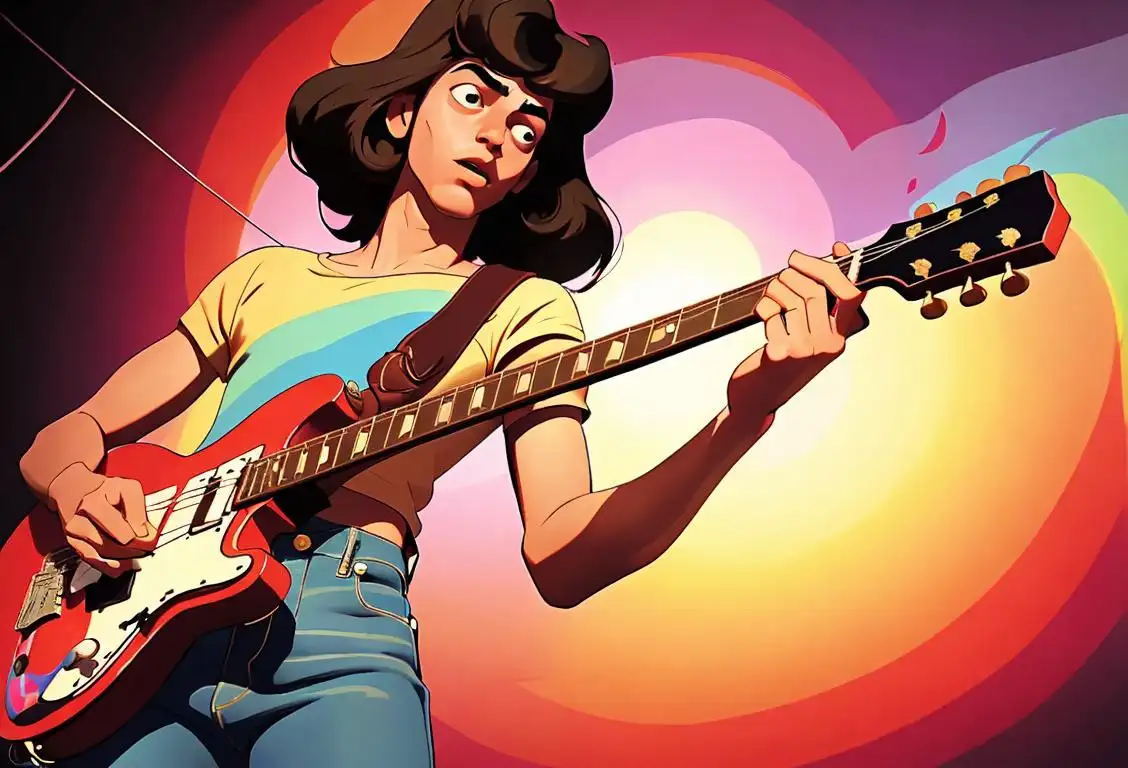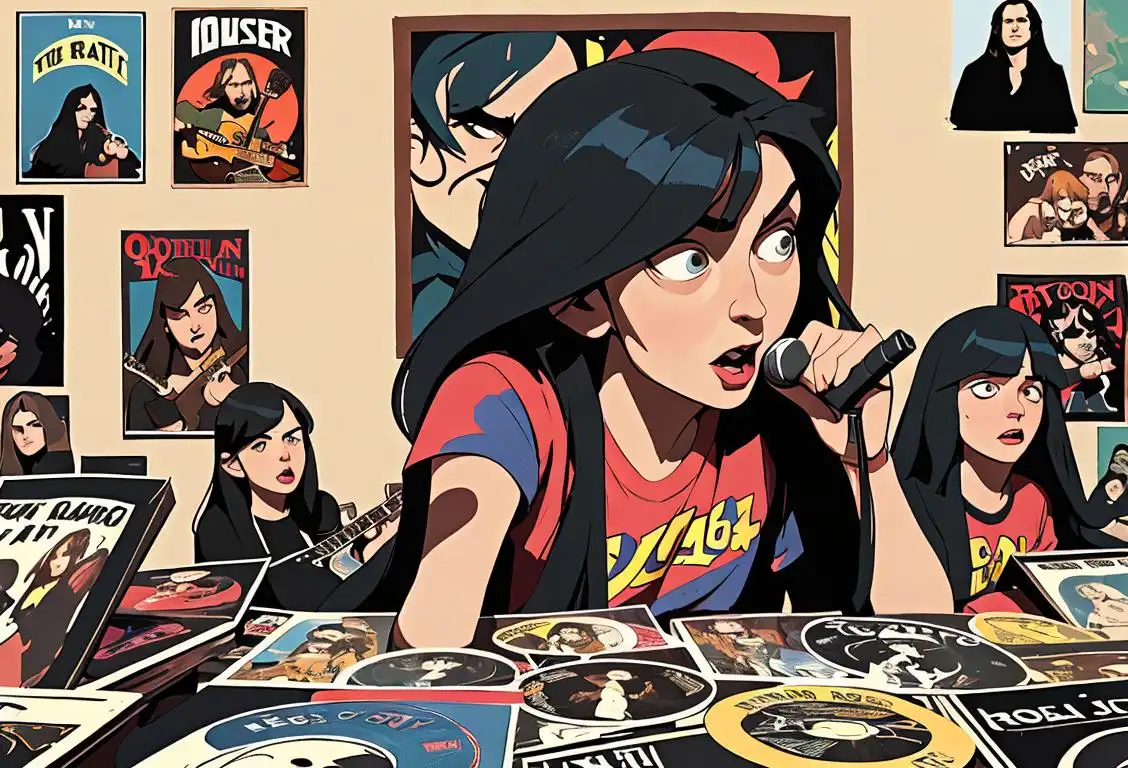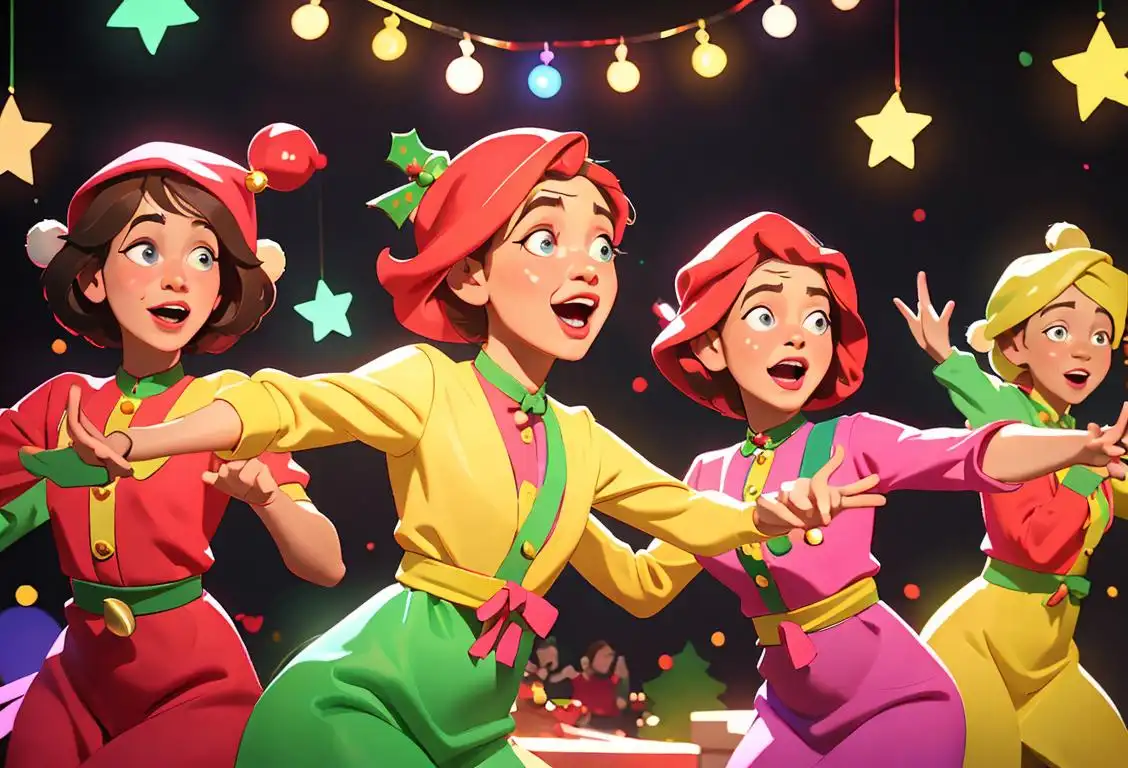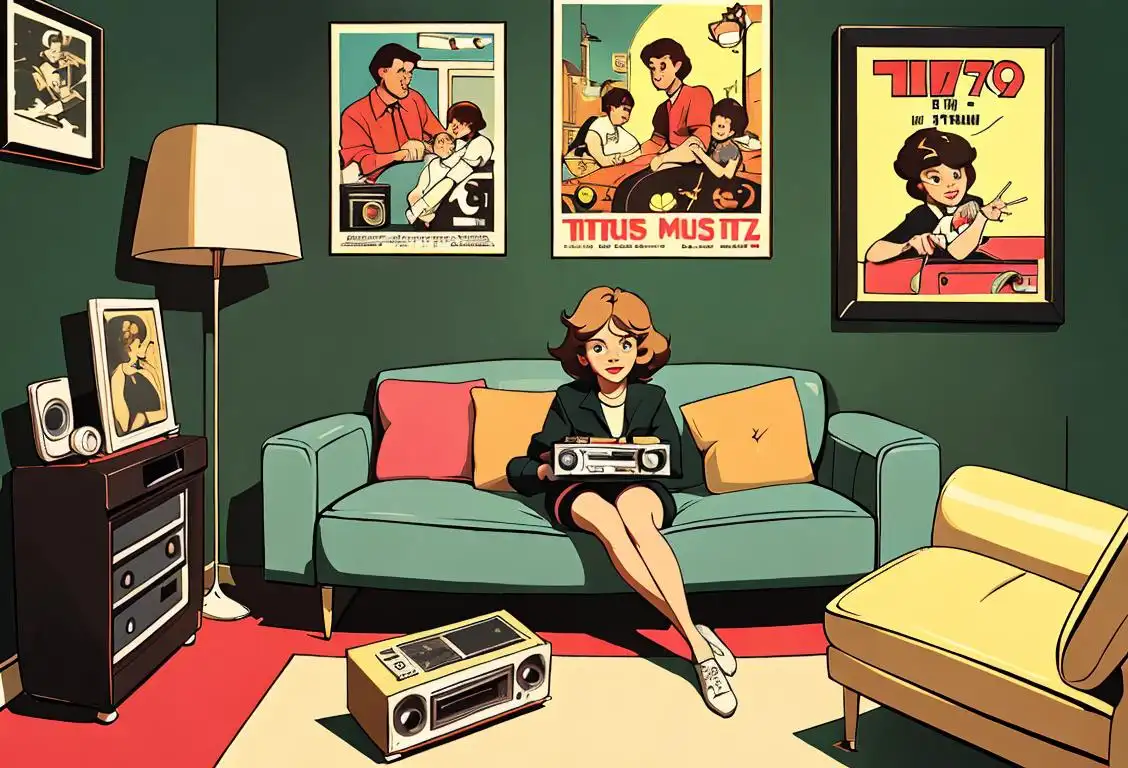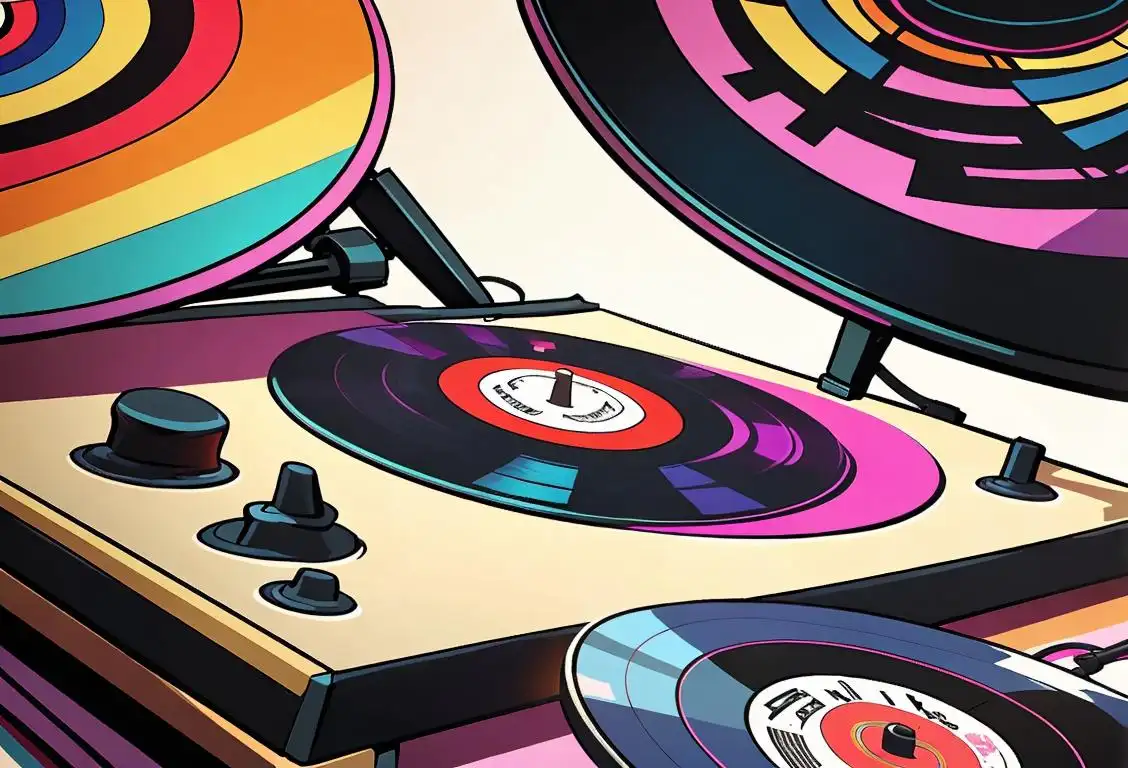National Jukebox Day
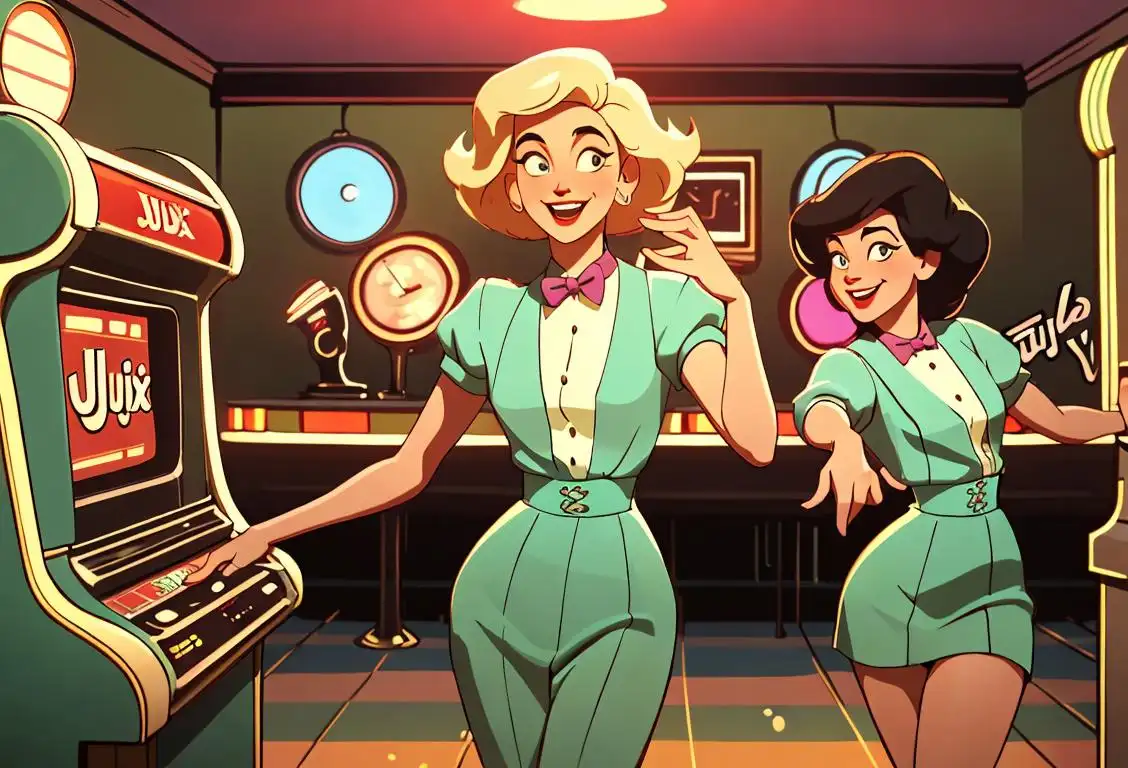
Hey there, music enthusiasts! Get ready to rock and roll because today we're celebrating National Jukebox Day, the day when we pay homage to those iconic machines that brought us our favorite tunes. So dust off your dancing shoes and let's take a trip down memory lane!
When is Jukebox Day?
It's national jukebox day on the 22nd November.
A Brief History of the Jukebox
Before streaming services and downloadable tracks, people relied on jukeboxes to satisfy their musical cravings. The first coin-operated jukebox was introduced in the late 1800s, but it wasn't until the early 20th century that these wondrous musical contraptions gained popularity.
The word 'jukebox' itself is said to have originated from the term 'juke joint,' which refers to an establishment where people gathered to enjoy music, dancing, and good company. Jukeboxes quickly became a staple in such places, allowing patrons to select and enjoy their favorite tunes as they sipped on their drinks and let loose on the dance floor.
The Golden Age of Jukeboxes
The 1940s and 1950s marked the golden age of jukeboxes. These vibrant and colorful machines became an integral part of diners, cafes, and bars, creating a lively atmosphere with their captivating melodies. They showcased the latest hits from beloved artists such as Elvis Presley, Chuck Berry, and Aretha Franklin, making them the ultimate music hub of the time.
The jukebox industry saw significant advancements during this period. Jukeboxes became sleeker, more stylish, and boasted improved audio systems. Some models even offered multiple record changers to keep the music flowing without interruption.
The Digital Revolution
As technology evolved, so did jukeboxes. The classic vinyl records were gradually replaced by compact discs (CDs) and later by digital music files. Modern-day jukeboxes can now store thousands of songs, allowing users to access an extensive music library with just a few taps on a touchscreen.
Today, although digital music dominates the scene, jukeboxes still hold a special place in our hearts. They evoke nostalgia, reminding us of simpler times when choosing a song was a physical and interactive experience.
Let's Celebrate National Jukebox Day!
On this National Jukebox Day, take a moment to appreciate the rich history and cultural significance of these musical marvels. Visit a retro-themed diner, gather your loved ones, and share some classic tunes that will have everyone tapping their feet. Whether you prefer the old-school charm of vinyl or the convenience of digital, let the jukebox transport you to a world filled with rhythm and melody.
History behind the term 'Jukebox'
1889
Invention of the Nickel-in-the-Slot Phonograph
In 1889, Louis Glass and William S. Arnold introduced the world to the Nickel-in-the-Slot Phonograph. This early precursor to the jukebox allowed people to listen to songs by inserting a nickel and turning a crank. The machine quickly gained popularity, with people eagerly lining up to enjoy the latest musical hits.
1889
Invention of the coin-operated phonograph
In 1889, the first coin-operated phonograph was invented by Louis Glass and William S. Arnold. This device allowed individuals to listen to recorded music by inserting a coin. The phonograph used cylinders to play the recorded sound, and the concept of paying for entertainment through a coin-operated mechanism was groundbreaking at the time.
1927
Coin-operated phonograph becomes more popular
By 1927, coin-operated phonographs had gained significant popularity, leading to an increased demand for these machines. They could be found in various public spaces, such as bars, dance halls, and arcades. People started referring to these machines as 'nickel-in-the-slot' machines due to the common usage of a five-cent coin to activate them.
1927
The First Automatic Coin-Operated Phonograph
In 1927, the Automatic Music Instrument Company introduced the world's first automatic coin-operated phonograph, known as the Automatic Entertainer. This innovative machine played a variety of songs on demand and was a significant step towards the modern jukebox. It was capable of holding up to 24 records, allowing listeners to choose from a wide selection of music.
1937
Term 'jukebox' coined
The term 'jukebox' was coined in 1937. Its origin is believed to be a colloquialism derived from the African-American slang word 'juke,' meaning a disorderly establishment or juke joint where people gathered to enjoy music, drink, and dance. As the popularity of the coin-operated phonograph machines grew, they became a prominent feature of these juke joints, and the term 'jukebox' was used to describe them.
1933
The Term 'Jukebox' Is Coined
The term 'jukebox' was first coined in 1933. Its origins are believed to come from African-American slang, where 'juke' referred to a disorderly or rowdy establishment. As these early coin-operated music machines became popular in juke joints and bars, they earned the name 'jukebox' due to their association with these lively places.
1940s-1950s
Jukeboxes become iconic symbols of American culture
During the 1940s and 1950s, jukeboxes became iconic symbols of American culture, especially associated with the booming music scenes. They were often showcased in diners, greasy spoon cafes, and other social gathering places, creating a lively atmosphere and making music more accessible to the masses. Jukeboxes played a crucial role in promoting popular songs and artists, contributing to the rise of rock and roll and influencing musical tastes.
1940s
The Golden Age of Jukeboxes
The 1940s marked the golden age of jukeboxes, with their popularity skyrocketing. The machines were commonly found in diners, bars, and dance halls, providing a source of entertainment and an opportunity for people to share their favorite songs. Jukeboxes played a crucial role in the development and dissemination of popular music, with artists and record labels competing for coveted jukebox placements to boost their sales.
1960s-Present
Evolution of jukeboxes: From vinyl to digital
In the 1960s, jukeboxes underwent a significant transformation with the introduction of vinyl records. These records provided a wide range of music choices and allowed jukebox owners to update their song selections more easily. Over the years, jukeboxes evolved further, utilizing cassette tapes, CDs, and eventually transitioning to digital formats. Today, modern jukeboxes incorporate internet connectivity, touchscreen interfaces, and streaming services, giving users access to an extensive music library with just a few taps.
1960s
The Rise of Compact Vinyl Jukeboxes
In the 1960s, jukeboxes underwent a significant transformation with the introduction of compact vinyl jukeboxes. The new models featured sleek designs and the ability to hold a large number of records, allowing for an even wider range of music choices. These compact vinyl jukeboxes revolutionized the jukebox industry and continued to captivate music enthusiasts across the world.
1989
The Digital Jukebox Era Begins
The late 1980s marked the advent of the digital jukebox era. Technological advancements allowed for the seamless transition from vinyl to digital format. Digital jukeboxes offered extensive music libraries, interactive touchscreens, and even the ability to create custom playlists. This innovation breathed new life into the jukebox industry, ensuring its continued relevance in the era of digital music consumption.
Did you know?
Did you know that the term 'jukebox' comes from the Southern African-American slang word 'jook' or 'juke,' which means to dance and have a good time? So next time you're busting a move near a jukebox, remember that you're keeping a vibrant cultural tradition alive!Tagged
fun nostalgia music retroFirst identified
22nd November 2016Most mentioned on
22nd November 2017Total mentions
477Other days
Jukebox Day
Retro Day
Record Store Day
One Hit Wonder Day
Old Rock Day
Jingle Day
Eight Track Day
Vinyl Record Day
Jonas Brothers Day
Emo Day
